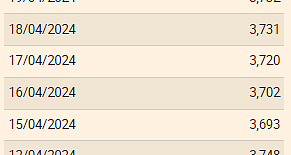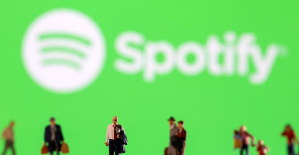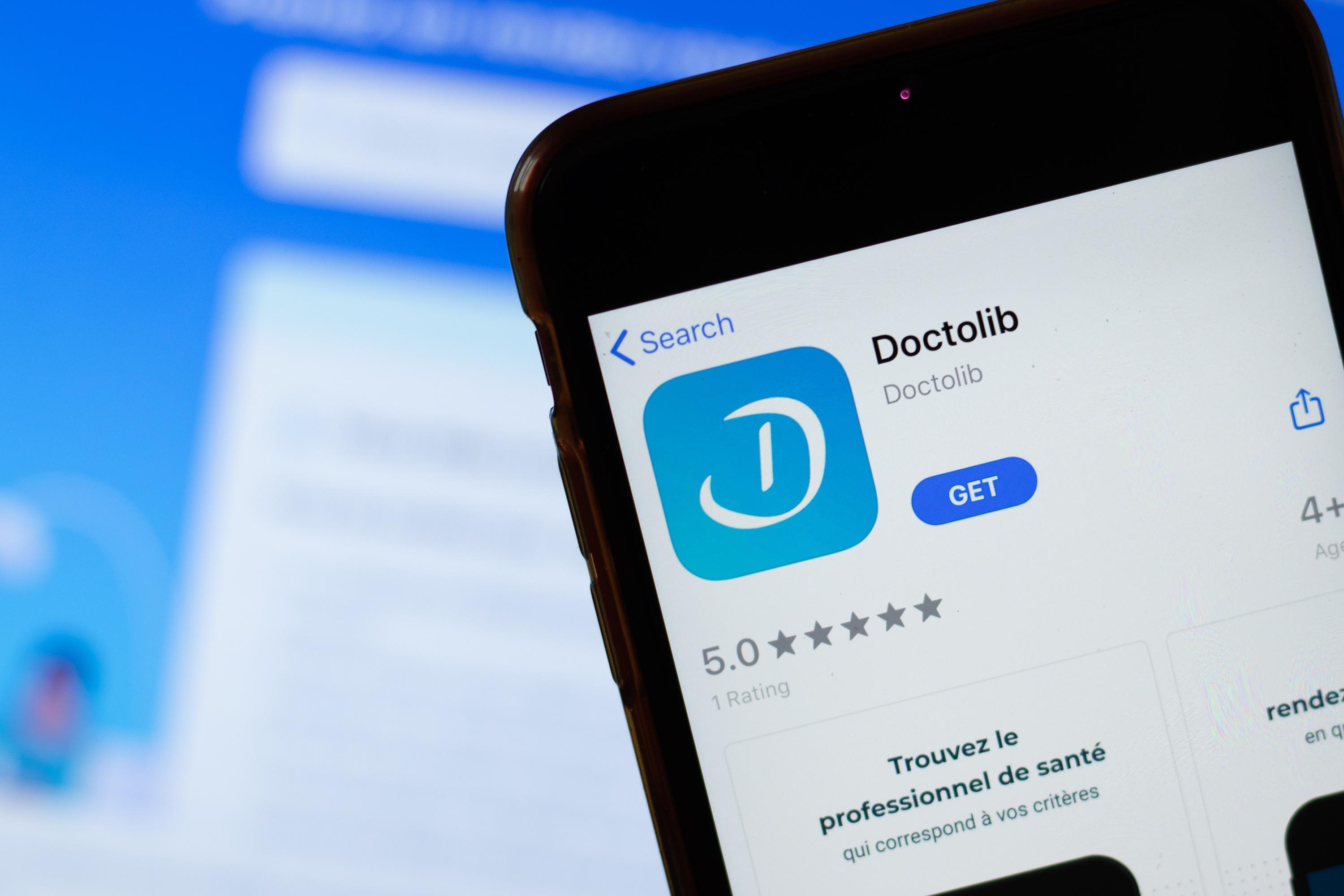The world of technology and video gaming is full of infighting at the moment. You’re all probably bored to death of hearing about the vicious battle between Apple and Epic Games. Now there appears to be an even bigger one brewing between Twitch and the music industry - one that could have enormously expensive consequences for both sides and change the way that streaming works forever. The debate is centered around one simple question:- if a streamer plays a piece of music in the background of their stream, are they violating copyright by doing so even if they legally own the right to play that music in their own home? It's a huge question with an uncertain answer, and it looks like the law might be required to rule on it.
The past twenty years haven’t been kind to the music industry. At the end of the 20th century, the only way to get music was to go to a store and purchase it on cassette, CD, or vinyl. While it was possible to 'bootleg' music by recording it off the radio, the quality wasn't great, and the professional product was always better. That hasn't been the case since the internet came along. The creation of the peer-to-peer file-sharing service known as "Napster" led to millions of incidents of music piracy, and from that point on, the value of music as a whole has been devalued. Even when Napster was shut down, other services sprang up to take their place. LimeWire, Pirate Bay, and Morpheus were all attracting millions of users every day during their peak. For those willing to break the law, music essentially became free. Record companies and artists saw their profits taking nosedives and didn't immediately know what to do about it.
Eventually, the music industry collectively decided that if they couldn't beat the pirates, they would join them online. Streaming services like Spotify might not pay as much as record sales used to, but they still generate an income and give artists a legal platform. We've also seen a diversification of where music appears online. Musicians and artists have begun to appear in games like "Fortnite," giving special digital performances. Great bands from the past have even found their way to online slots websites and taken a slice of casino money. If you're a Guns n' Roses fan, you can play Playtech casino in the legendary band's officially branded game while listening to a jukebox selection of their greatest hits. That format has been so successful that bands as unlikely as the Village People now have their own online slots game, and more are likely to join them in the future. Inventive creations like this generate money for both the online slots website or video game owner and the band and label. Twitch streams only generate income for Twitch and the streamer, and this is the bone of contention.
The first rumblings that there might be trouble brewing between Twitch and the music industry as a whole came last June, but in recent weeks things have taken a turn for the worse from Twitch's point of view. More than a dozen record labels have signed a letter, also signed by the RIAA, that directly accuses Twitch of failing to obtain licenses for the platform's "Soundtrack" feature and failing to take action when music is played on streams without licensing or authorization. The letter goes on to state that Twitch has been served with more than a thousand separate copyright infringement notices and hasn't taken action on any of them. Their stance is compared to that of YouTube, which operates an algorithm that identifies and blocks content where copyrighted music is detected. It would be difficult for Twitch to use a similar algorithm as content on the platform is streamed live rather than uploaded after recording, but it ought not to be impossible.
Twitch, as you would reasonably expect, rejects these claims. A statement issued on behalf of the platform says that they have official partnerships with dozens of labels and promoters and also regularly pays royalties to ASCAP and a number of other official bodies that distribute fees to artists and their respective record labels. Interestingly, the statement specifies that the payments and licenses pertain to "Twitch's own projects and productions," which could be interpreted as an attempt to shift blame for copyright violations away from the platform and onto individual streamers. If so, that could be bad news for thousands of streamers who rely on the platform for their income. The types of fine handed down for copyright infringement tend to be punitive, and most streamers wouldn't have the resources to pay for them. Streamers reported the deletion of thousands of hours worth of previously-uploaded content last week. Twitch later confirmed that it had selectively deleted the content after issuing numerous DMCA takedown notices.
It's worth noting that it might not necessarily serve Twitch's interests to clamp down too hard on the activities of its streamers. There are other streaming platforms available, and if high-profile users decide they're unhappy with the impact that DMCA takedowns or deletions are having on their content or their income, they might move elsewhere. When well-known streamers have moved between platforms in the past, they've demonstrated that their audience follows them. YouTube and Facebook Gaming would love to take some of Twitch's most-viewed stars, and Twitch is all-too-aware of that. They have to toe the line between doing what's required of them from a legal point of view and not ruffling the feathers of the users who make them money. It's an unenviable task, and their execution of that task clearly isn't to the liking of the music industry.
The disagreement between Twitch and record labels is likely to go on for some time and might even end up in court. If you're a regular streamer, it's entirely possible that you might get caught up in the crossfire. Because of that, we'd like to offer you some advice. There are tools available online that will back up all of your previously-uploaded content with one click of a button. That's worth taking the time to so as a safeguard in case content is suddenly lost forever. Once you've done that, source your background music from websites that offer it free of copyright. Don't play your favorite songs. Don't use Spotify or Amazon Music. The risks are great, and there are no rewards.

 The Euribor today remains at 3.734%
The Euribor today remains at 3.734% Germany: the trial of an AfD leader, accused of chanting a Nazi slogan, resumes this Tuesday
Germany: the trial of an AfD leader, accused of chanting a Nazi slogan, resumes this Tuesday New York: at Columbia University, the anti-Semitic drift of pro-Palestinian demonstrations
New York: at Columbia University, the anti-Semitic drift of pro-Palestinian demonstrations What is Akila, the mission in which the Charles de Gaulle is participating under NATO command?
What is Akila, the mission in which the Charles de Gaulle is participating under NATO command? What High Blood Pressure Does to Your Body (And Why It Should Be Treated)
What High Blood Pressure Does to Your Body (And Why It Should Be Treated) Vaccination in France has progressed in 2023, rejoices Public Health France
Vaccination in France has progressed in 2023, rejoices Public Health France Food additives suspected of promoting cardiovascular diseases
Food additives suspected of promoting cardiovascular diseases “Even morphine doesn’t work”: Léane, 17, victim of the adverse effects of an antibiotic
“Even morphine doesn’t work”: Léane, 17, victim of the adverse effects of an antibiotic MEPs validate reform of EU budgetary rules
MEPs validate reform of EU budgetary rules “Public Transport Paris 2024”, the application for Olympic Games spectators, is available
“Public Transport Paris 2024”, the application for Olympic Games spectators, is available Spotify goes green in the first quarter and sees its number of paying subscribers increase
Spotify goes green in the first quarter and sees its number of paying subscribers increase Xavier Niel finalizes the sale of his shares in the Le Monde group to an independent fund
Xavier Niel finalizes the sale of his shares in the Le Monde group to an independent fund Owner of Blondie and Shakira catalogs in favor of $1.5 billion offer
Owner of Blondie and Shakira catalogs in favor of $1.5 billion offer Cher et Ozzy Osbourne rejoignent le Rock and Roll Hall of Fame
Cher et Ozzy Osbourne rejoignent le Rock and Roll Hall of Fame Three months before the Olympic Games, festivals and concert halls fear paying the price
Three months before the Olympic Games, festivals and concert halls fear paying the price With Brigitte Macron, Aya Nakamura sows new clues about her participation in the Olympics
With Brigitte Macron, Aya Nakamura sows new clues about her participation in the Olympics Skoda Kodiaq 2024: a 'beast' plug-in hybrid SUV
Skoda Kodiaq 2024: a 'beast' plug-in hybrid SUV Tesla launches a new Model Y with 600 km of autonomy at a "more accessible price"
Tesla launches a new Model Y with 600 km of autonomy at a "more accessible price" The 10 best-selling cars in March 2024 in Spain: sales fall due to Easter
The 10 best-selling cars in March 2024 in Spain: sales fall due to Easter A private jet company buys more than 100 flying cars
A private jet company buys more than 100 flying cars This is how housing prices have changed in Spain in the last decade
This is how housing prices have changed in Spain in the last decade The home mortgage firm drops 10% in January and interest soars to 3.46%
The home mortgage firm drops 10% in January and interest soars to 3.46% The jewel of the Rocío de Nagüeles urbanization: a dream villa in Marbella
The jewel of the Rocío de Nagüeles urbanization: a dream villa in Marbella Rental prices grow by 7.3% in February: where does it go up and where does it go down?
Rental prices grow by 7.3% in February: where does it go up and where does it go down? Europeans: “All those who claim that we don’t need Europe are liars”, criticizes Bayrou
Europeans: “All those who claim that we don’t need Europe are liars”, criticizes Bayrou With the promise of a “real burst of authority”, Gabriel Attal provokes the ire of the opposition
With the promise of a “real burst of authority”, Gabriel Attal provokes the ire of the opposition Europeans: the schedule of debates to follow between now and June 9
Europeans: the schedule of debates to follow between now and June 9 Europeans: “In France, there is a left and there is a right,” assures Bellamy
Europeans: “In France, there is a left and there is a right,” assures Bellamy These French cities that will boycott the World Cup in Qatar
These French cities that will boycott the World Cup in Qatar Serie A: Bologna surprises AS Rome in the race for the C1
Serie A: Bologna surprises AS Rome in the race for the C1 Serie A: Marcus Thuram king of Italy, end of the debate for the position of number 9 with the Blues?
Serie A: Marcus Thuram king of Italy, end of the debate for the position of number 9 with the Blues? Milan AC-Inter Milan: Thuram and Pavard impeccable, Hernandez helpless… The tops and flops of the derby
Milan AC-Inter Milan: Thuram and Pavard impeccable, Hernandez helpless… The tops and flops of the derby Ligue 2: Auxerre leader, Bordeaux in crisis, play-offs... 5 questions about an exciting end of the season
Ligue 2: Auxerre leader, Bordeaux in crisis, play-offs... 5 questions about an exciting end of the season


















